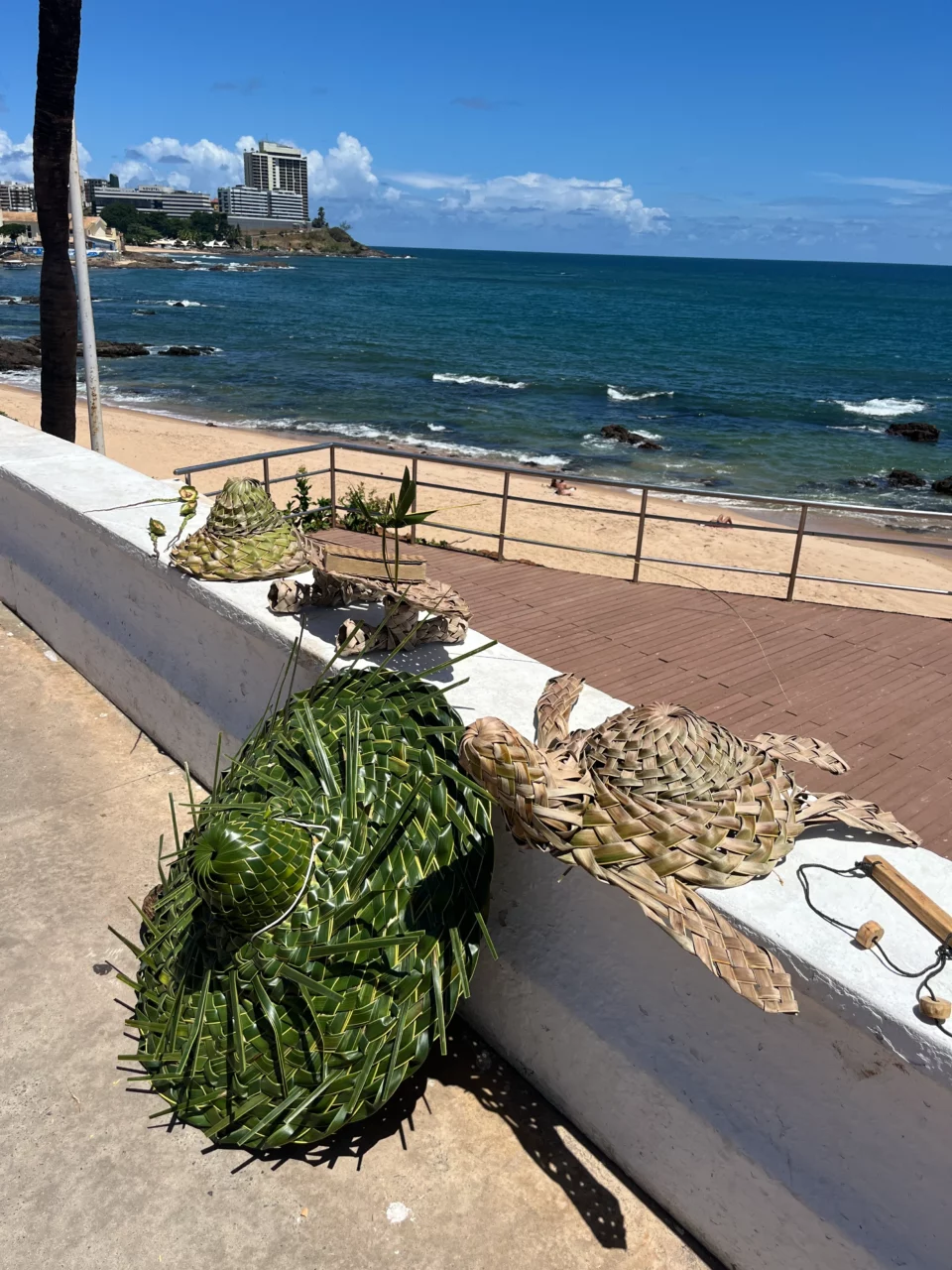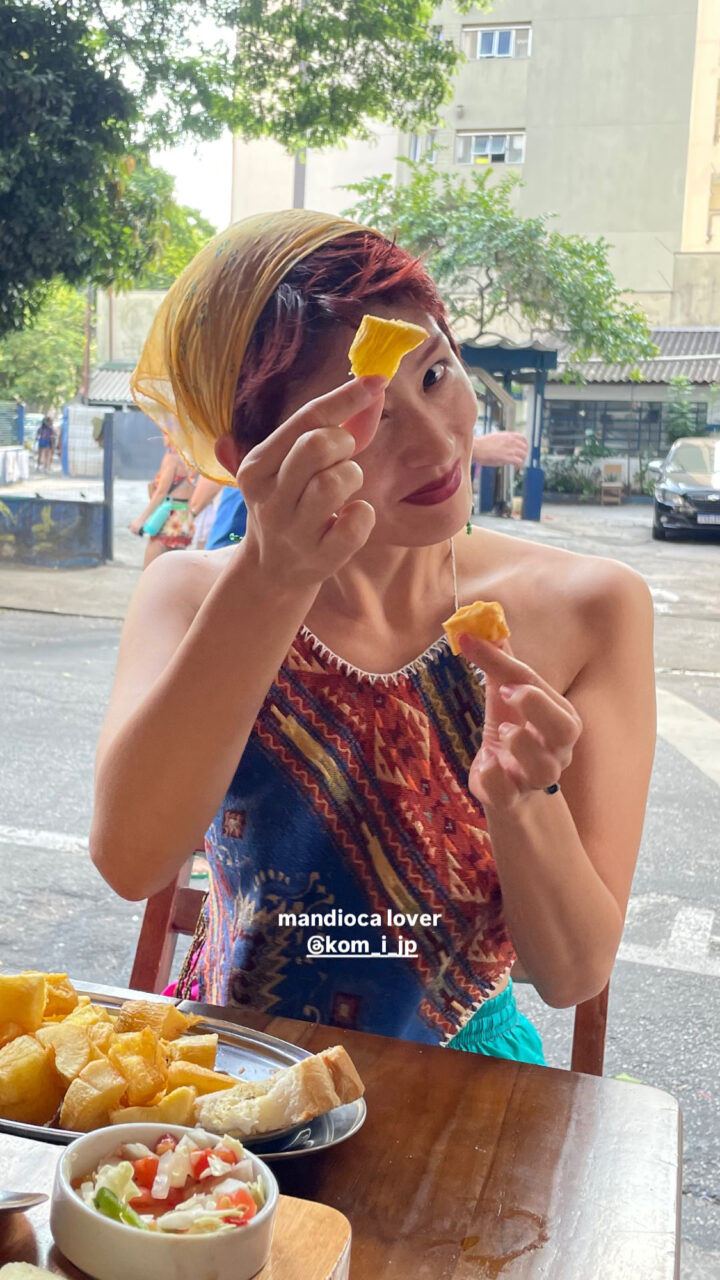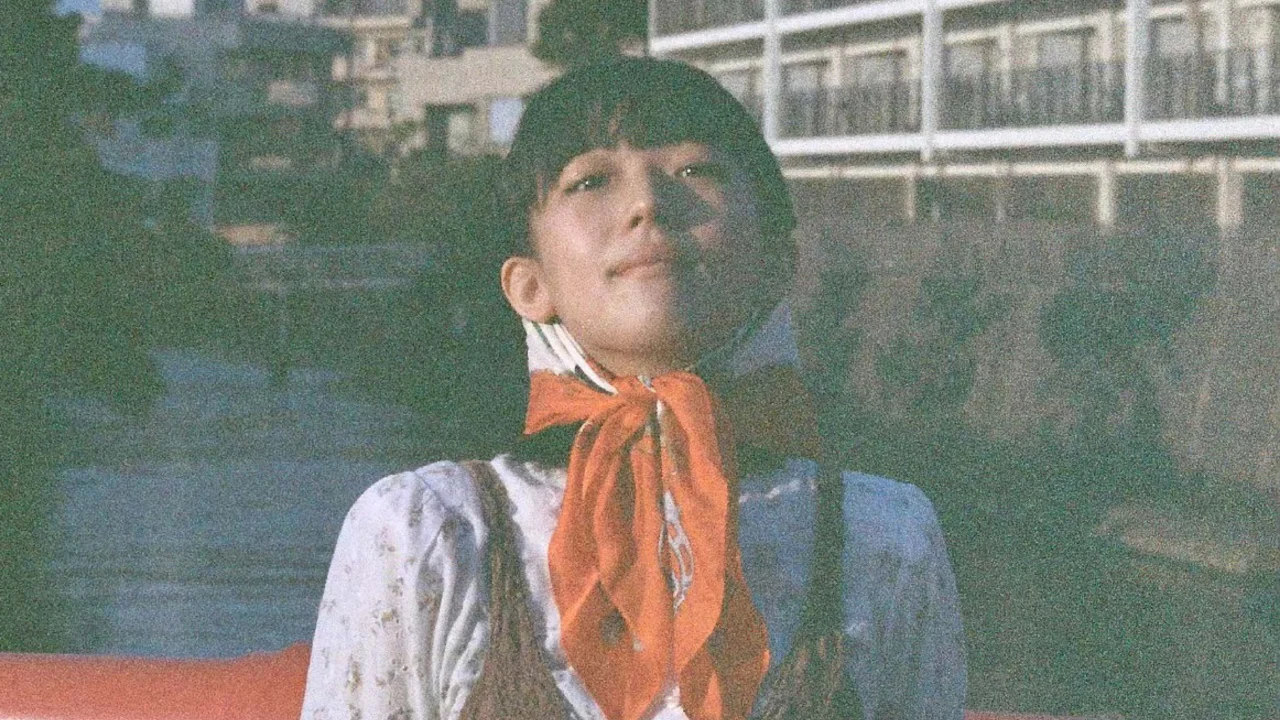INDEX
Beach culture: A space of equality, unaffected by wealth.
Recently in Japan, we hear and see xenophobic attitudes towards people of foreign descent living in Japan. As someone from Japan staying in Brazil, what’s your personal experience?
KOM_I: From my personal experience, just walking around the streets, everyone talks to me. I’ve never felt like, “I’m a foreigner, sorry for being here.” I don’t know if people coming to Japan have the same experience, and as a Japanese person, I feel sorry about that. In Salvador, there aren’t many Asians, so I get a lot of attention. Since it’s literally the other side of the world, people often get excited and tell me, “I really love dramas,” and I have to say, “That’s probably Korean…” [laughs]. Of course, Brazil has its own issues. For example, in the last election, the current administration won by a very slim margin, so there’s always the possibility that a xenophobic or a government that undermines the rights of LGBTQIA+ people could take over. It’s a very close situation.
Something I realized now that I’m living by the ocean for the first time in my life is how equal beach culture is. When you go to the beach, you meet all sorts of people. At the beach, everyone’s in swimsuits, and though we’re dressed, it almost feels like we’re all naked. Wealthy people and those who aren’t can swim, lie down, and enjoy the beach in the same way.

In some areas, gentrification has led to beaches being segregated for the wealthy, but traditionally, beaches are open spaces, right?
KOM_I: In Salvador, there might be places with hotels and high-rise buildings, but most beaches are public. Near where I live, there’s a slum called “Comunidade” (meaning “community” in Portuguese). People from all income levels walk by in their swimsuits, and of course, the beaches are free. It doesn’t matter whether you’re wealthy or not—everyone enjoys the beach here equally, with a sense of freedom. I’ve heard that it’s forbidden in Japan, but in Brazil, you’ll see people swimming with a beer in hand. What really impressed me was on New Year’s Eve, when everyone dresses in white and heads to the beach. Instead of going to izakayas or restaurants, people bring tables and food from home, turning the streets and beaches into party venues. They eat, drink, and when the countdown ends, we all watch fireworks in the distance, hug each other, and say, “Wow.” They’re really great at celebrating.
What kind of music do you hear during those times?
KOM_I: Everyone brings speakers and plays their favorite music. As you walk, various types of music mix together, creating a flood of sound. There’s a lot of samba, and the genre called axé is also very popular.
So, it’s music from all directions [laughs].
KOM_I: People really love to sing and dance. It’s like a karaoke box without walls. But it’s not tiring; it’s more like the music lifts your spirits. When I’m in Brazil, I feel like the cheerful side of my personality comes out more and more.


























